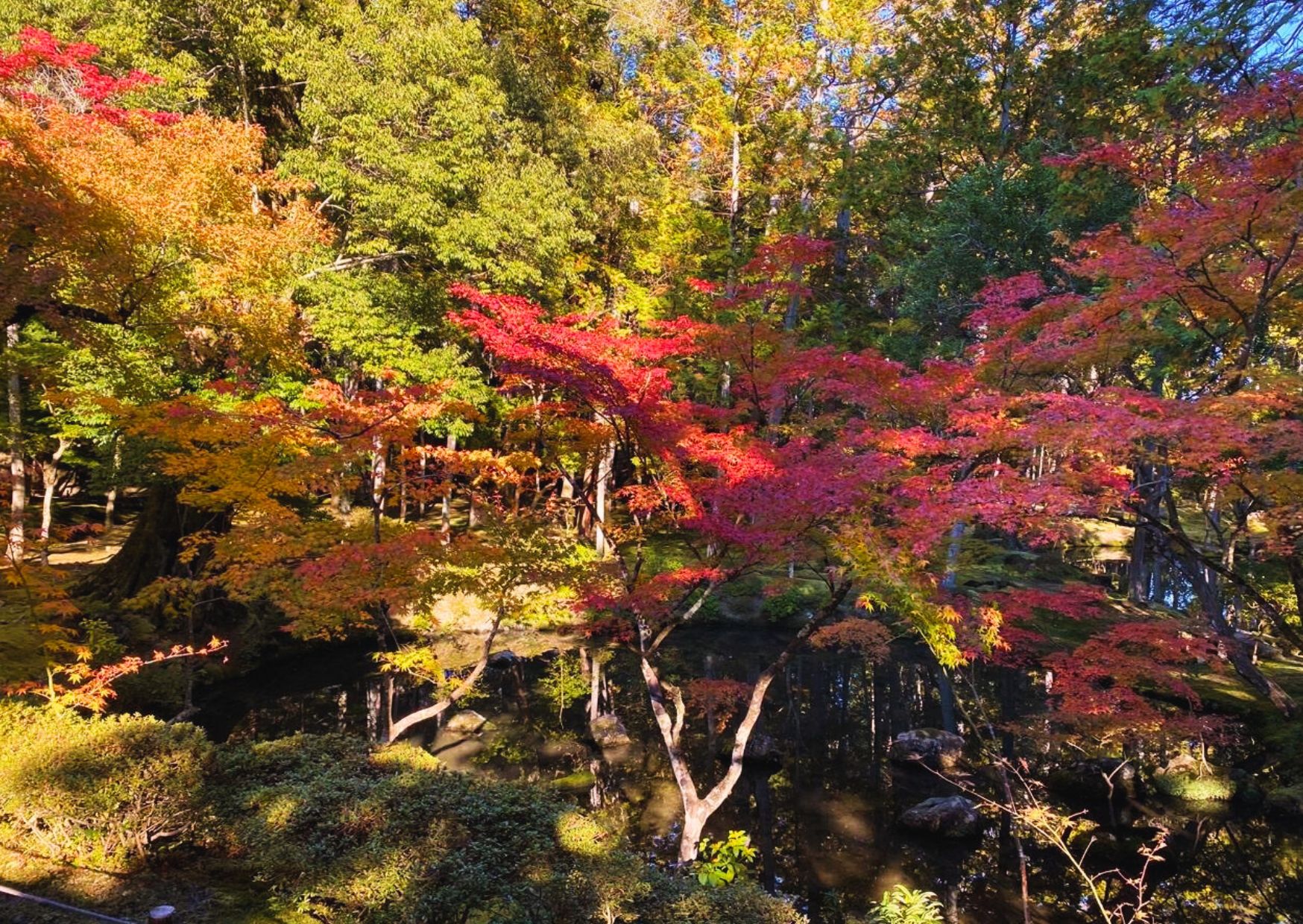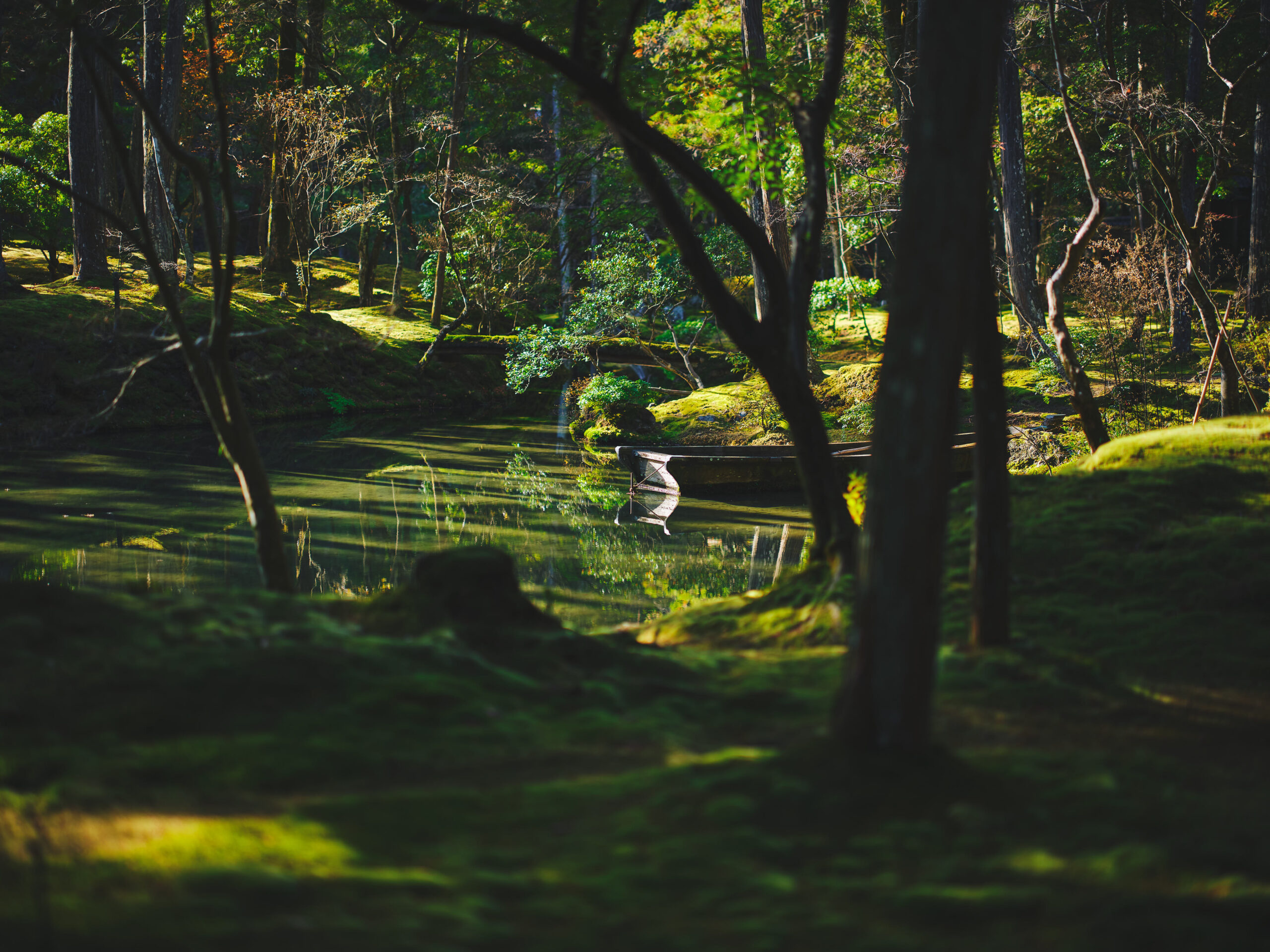2025.4.20
Winds of Gold—A Hundred Views of Saihoji Vol. 12
Peter MacMillan / a translator, scholar, poet
In this series of essays on Saihoji the renowned translator of Japanese poetry and poet Peter MacMillan records his impressions of and reflections on his visits to the garden throughout the four seasons. We hope that through these essays you the readers and fans of Saihoji can feel as if you are also present in the magical garden even when you cannot visit us.
A Beauty Only Seen in Winter
It is a very cold day in early February and everywhere the garden is in winter mode. One of the special things about Saihoji is that it does not rake the leaves of the garden in winter to let the moss rest. When you visit in this season it is like visiting a good friend’s home. It feels very comfortable and lived in, but they have not had a chance to clean up completely before you came.
Having said that as I walk around the garden, I notice that the head gardener, Mr. Miyazaki, is in the pond up to his knees and gathering the leaves of the Japanese cypress tree in a net. When I ask him why he is doing so, he tells me that the leaves have oil in them so that they do not sink like other leaves but rather float on the surface of the pond. They also are affected by the wind, and if the wind blows east the leaves will blow east too, so he must plan well the timing for gathering them. It was an anecdote that I could only hear in winter. And only from the gardener who has the experience of reading the wind directions, something we hardly are aware in everyday life.
I started to wonder about what is special about the winter garden. The foliage is gone from the trees and their shapes become clear, the shape of the earth and the undulations in the garden path also become clear; the rock walkways and rock arrangements come into focus, and the shiny silver water in the pond seems as if it is reflecting everything in our world, not just the overcast sky. The garden has removed all her clothes. She stands there in all her natural beauty, fully exposed but with nothing to hide.
I recalled the Tsurezuregusa by Yoshida Kenko and how he describes the beauty of beginnings and endings and writes they are what are truly interesting. Beginnings and endings relate to the impermanence of things, and it is impermanence itself which provides a base for us from which to develop our sensibilities and appreciate the deepest meaning of life.
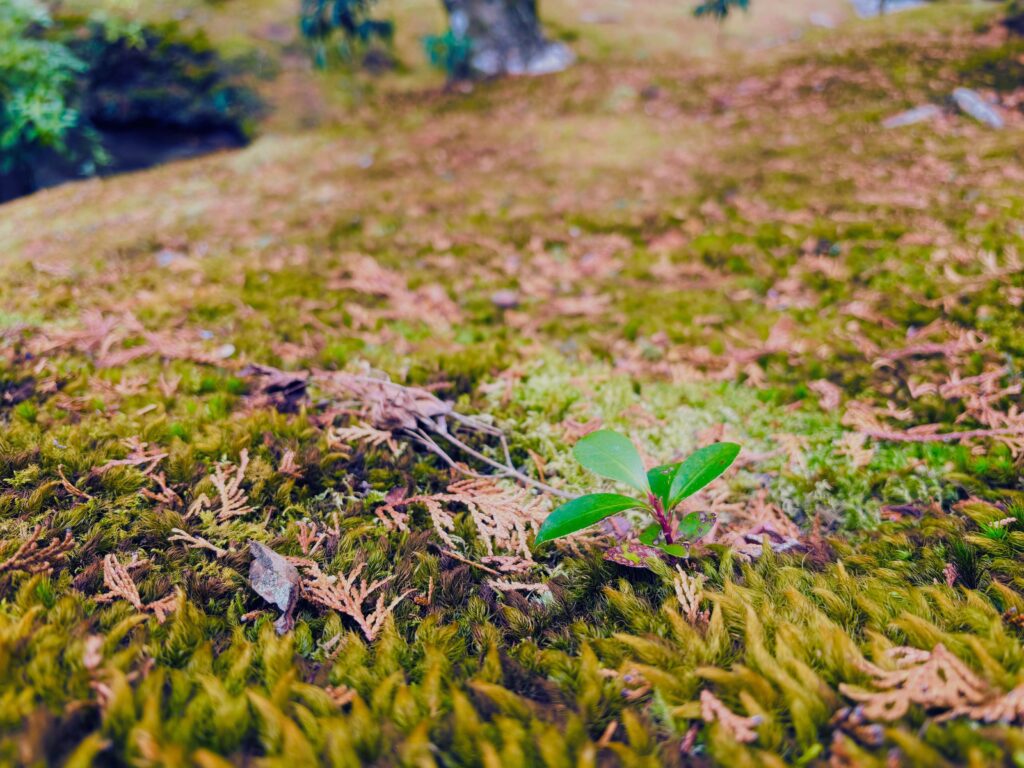
People flock to gardens at their peaks, in the cherry blossom season, or when the trees are covered in the glory of maples leaves. But there is another beauty, not so obvious, but deeper and more profound. It is the beauty that of the garden when she reveals her true and unadorned self. It is the beauty of endings, the beauty of winter, for in winter I feel we can see the true essence of the garden. We may not notice it at first sight, but when we become aware of it, it will stay with us forever and equal if not surpass the beauty of blossoms and maples that we have grown up to admire.
I am always very happy to find beauty in unusual places, times, or things. What I learnt from my walk this morning is that there are countless forms of beauty other than the ones we expect, and the appreciation of beauty is highly personal and very much affected by our experience and stage in life.
For you to discover beauty in new things, be they small or large, you need only to pay attention to the world around you. The world is filled with beautiful things waiting to reveal themselves to you, so I hope you will feel confident to believe in and pursue and develop your own sense of beauty. The moss garden can be a great first teacher.
Peter MacMillan
Peter MacMillan is a prize-winning translator, scholar, poet, and President of The Moon is a Boat Co., Ltd.
His translation, One Hundred Poets, One Poem Each (Hyakunin Isshu), was published in 2008, winning prizes in both Japan and the United States. After that, he completed an English translation of The Tales of Ise (Ise Monogatari), which was published by Penguin in 2016. He has also published a collection of poetry entitled Admiring Fields.
Awards:
Recipient of the Donald Keene Center Special Prize for the Translation of Japanese Literature
Recipient of the 44th Special Cultural Translation Prize from the Japan Society of Translators
Nominated for the PEN Award for Poetry Translation for the English translation of The Tale of Ise (Ise no Monogatari)

Up next
Most read
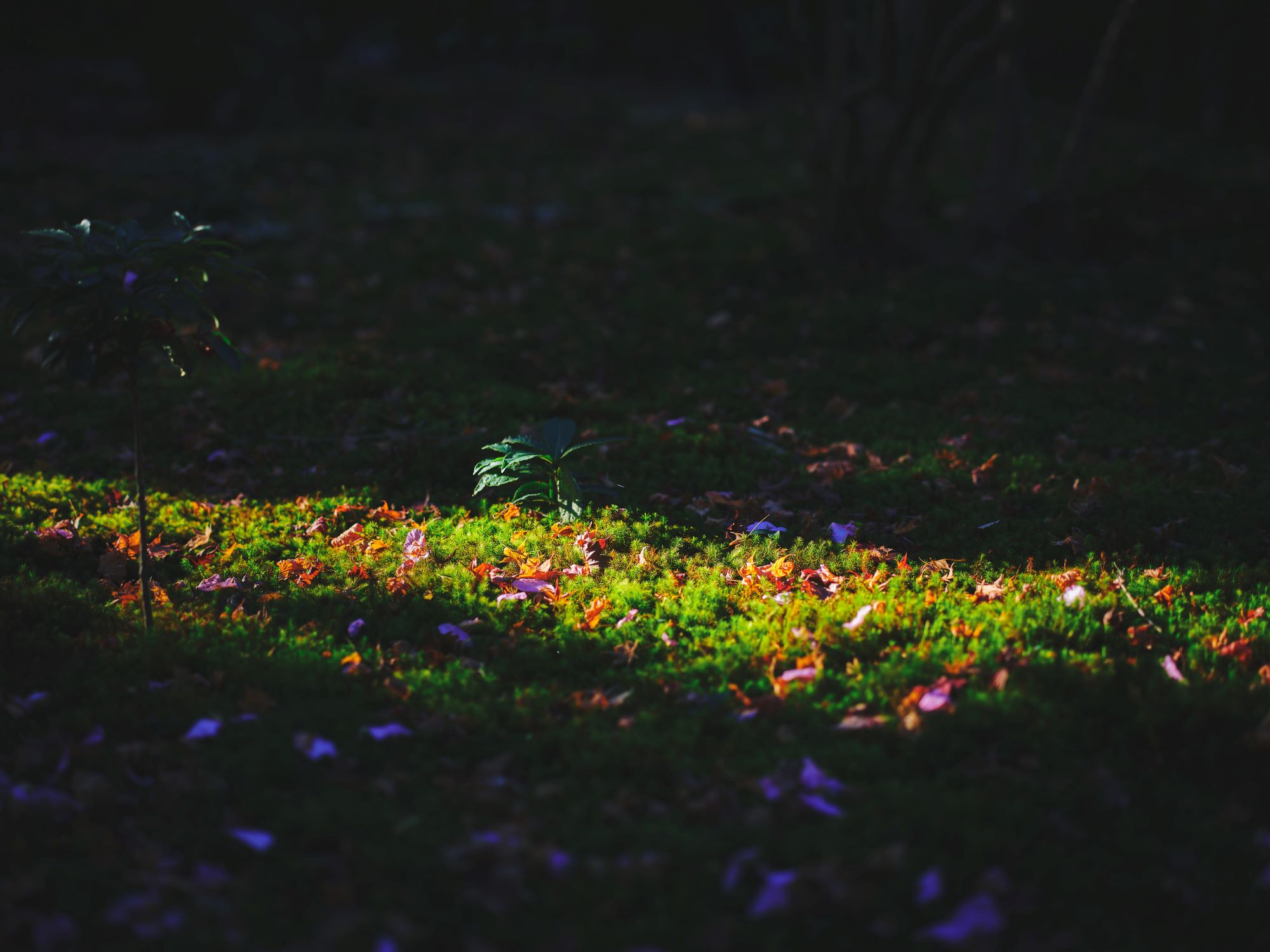
Your Heart
"Life and Death"
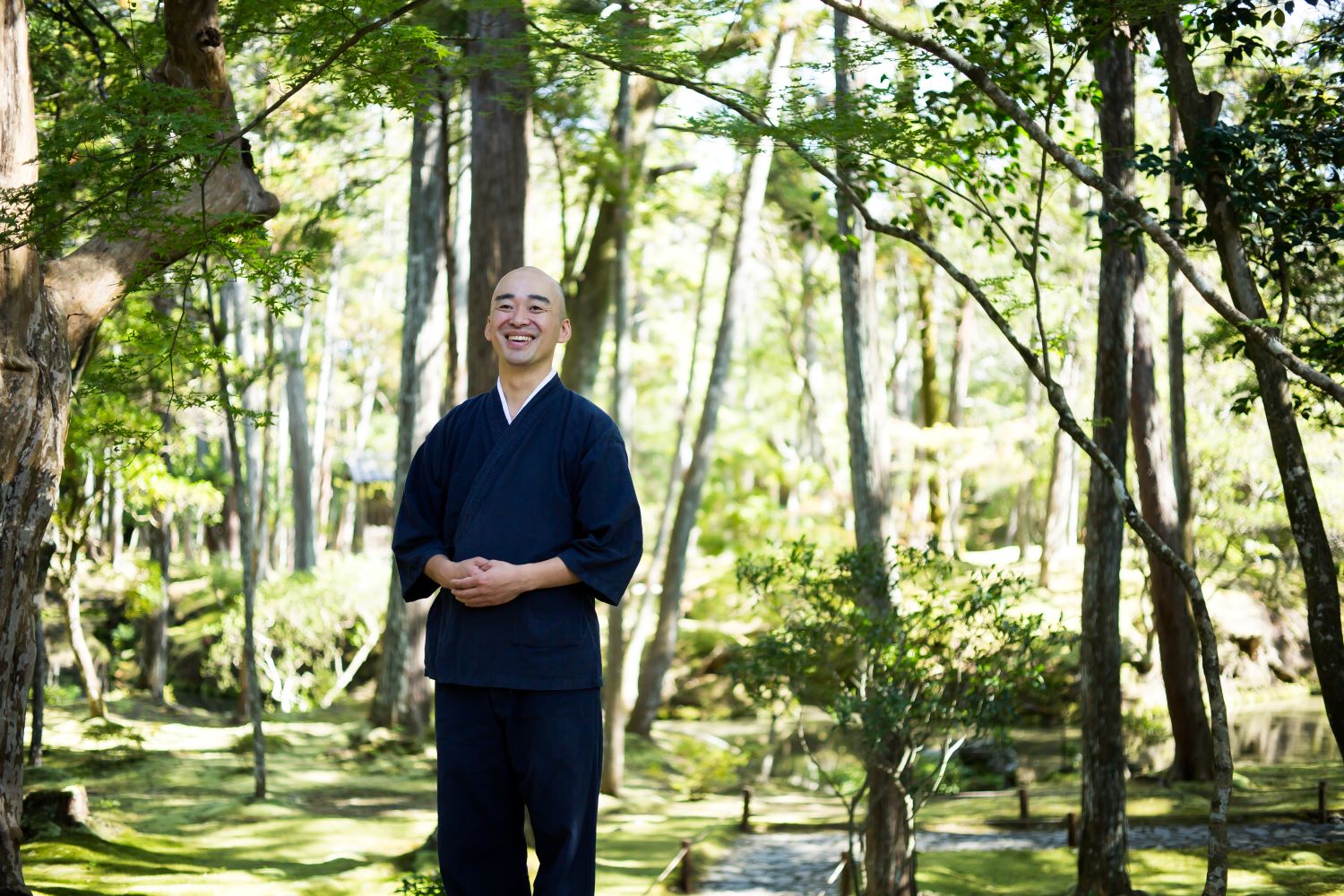
Your Heart
"What is happiness?"


